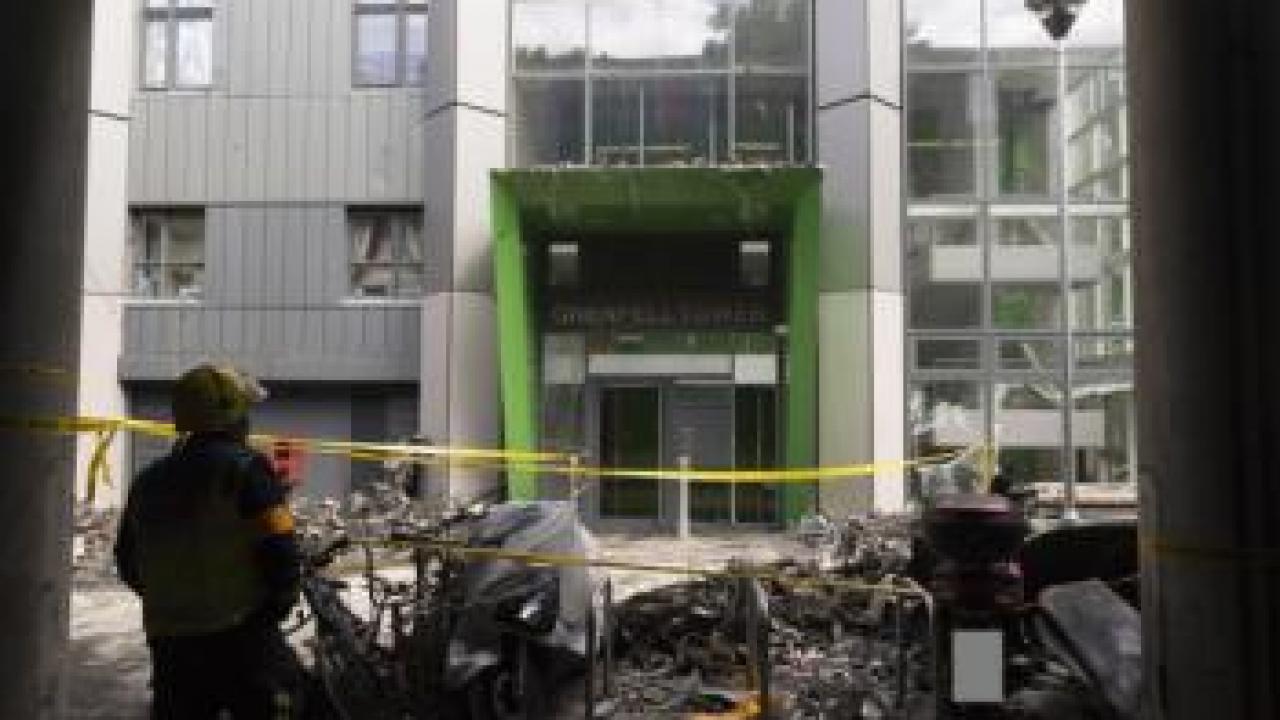

Influential committee of MPs call for combustible cladding system ban
The Housing, Communities and Local Government Committee has called for extension of combustible cladding ban and action to tackle conflicts of interest in the construction industry, in a major new report into building regulations and fire safety.
Urgent and wide-ranging action to ensure the safety of people living in high-rise buildings needs to be taken by the Government, including extending a proposed ban on combustible cladding and tackling the conflicts of interest that are pervasive throughout the construction industry.
The Committee recommends extensive changes to building regulations, following the publication of the Final Report of the Independent Review of Building Regulations and Fire Safety, set up after the Grenfell Tower fire in June 2017.
Meanwhile, the government has clarified building regulations fire safety guidance, following recommendations made by Dame Judith Hackitt, and is seeking views on the revisions in a new consultation.
4.jpg)
Adrian Dobson, Executive Director Professional Services at the Royal Institute of British Architects, welcomed the findings of the committee and called upon the Government to act now to provide clarity for the industry and to protect the public.
"We strongly support recommendations to extend the ban of combustible cladding and insulation to other high-risk buildings such as schools, residential care homes and hospitals, and to consider other changes to the regulatory framework including second means of escape and fire service activated alarms in each flat," he added.
"The RIBA has consistently called for mandating sprinkler systems and an immediate and comprehensive review of Approved Document B and we are pleased that the select committee has recognised the need for clarity and certainty in the construction sector.
"The Grenfell Tower fire disaster has shaken public confidence in the construction industry. To help rebuild trust and ensure that new developments do not repeat the mistakes of the past the government should respond to the Select Committee’s recommendations without delay."
The report outlines several conflicts of interest that exist in the construction industry. The Committee is particularly concerned with how builders are able to appoint their own inspectors, who may have a commercial interest in not reporting bad practice to the local authority, and manufacturers choosing the most lenient testing bodies for their products. The Committee also calls for the Government to prohibit the practice of Fire Rescue Authorities acting as the enforcement authority where their commercial trading arms are providing safety advice.
The report includes:
- calls for ‘a robust system of oversight and meaningful sanctions, but underpinned by a strong, prescriptive approach’ and argues that the two should not be seen as mutually exclusive;
- welcomes the Government’s intention to ban the use of materials which are not of limited combustibility in the cladding of new high-rise buildings, but says the ban must also apply to existing buildings and residential homes, hospitals, student accommodation and hotels;
- concludes that, where feasible, sprinklers should be fitted to all high-rise residential buildings to provide an extra layer of safety and that the Government should make funding available for installation in council and housing association-owned buildings;
- highlights several examples of conflicts of interest in the industry, with Fire Rescue Authorities inspecting the work of their own commercial trading arms, builders appointing their own inspectors and private sector companies influencing fire safety guidance;
- says that reforms should be rolled out to the whole of the construction industry;
- says it is clear that the ownership and responsibility of privately owned buildings is often complex and recommends that the Government conducts an urgent review into responsibility and liability of such building to ensure the necessary work can be carried out for the safety of residents, which is paramount. The Government should then produce further subsequent guidance for building owners;
- and calls on the Government to introduce a low-interest loan scheme for private sector building owners, to ensure that remedial work is carried out as quickly as possible and that costs are not passed on to leas leaseholders.
Clive Betts MP, Chair of the Committee, said: "We are now more than a year on from the catastrophic events at Grenfell Tower, yet despite an Independent Review of building regulations, we are still no closer to having a system that inspires confidence that residents can be safe and secure in their homes.
"We agree with the Independent Review that there is a need for a fundamental change of culture in the construction industry, but there are also measures that can and should be introduced now.
"We welcome the intention of the Government to ban combustible cladding, but the proposals do not go far enough. A ban on dangerous cladding must be extended beyond new high-rise constructions, to existing residential buildings as well as other high-risk buildings.
"The industry is riven with conflicts of interest at every turn, with manufacturers choosing the most lenient testing bodies for their products. It just cannot be right that builders get to choose who marks their homework and urgent action is needed to make sure this does not continue. Fire Rescue Authorities should not be able to pass judgement on the work of their own commercial trading arms.
"The current complicated web of building regulations is compromising safety and putting people at risk in their own homes. It desperately needs both simplifying and strengthening and the Government must act now before more lives are lost."
Responding to the report, Lord Porter, Local Government Association Chairman, said the tragedy that unfolded at Grenfell Tower must never be allowed to happen again and we must ensure that those who live, work and visit high-rise and high-risk buildings are safe.
“There is increasing evidence that the BS8414 test – which tests the fire performance of external cladding and insulation systems - cannot be relied upon," he continued. "Flaws with the testing process have been exposed time and again since the Grenfell Tower fire.
“The evidence from real fires in real tower blocks shows that using combustible materials on the external walls of high-rise buildings kills people. We continue to strongly urge the Government to ban the use of any combustible materials - including cladding panels, insulation and other materials - on the external walls of high-rise and high-risk buildings.
“It is wrong for anyone to argue that it might be more appropriate for the ban on combustible materials to focus on banning some combustible cladding panels while allowing the continued use of other combustible materials in cladding systems.
“Implementation of the recommendations from Dame Judith’s final report, and the culture change she seeks in the construction industry will take time. However building owners, the construction industry and regulators need about clarity now about what they can and cannot put on the side of the buildings. The safest and most unambiguous way of providing that clarity is to ban the use of combustible materials on the external walls of high-rise and high-risk buildings without delay.”

